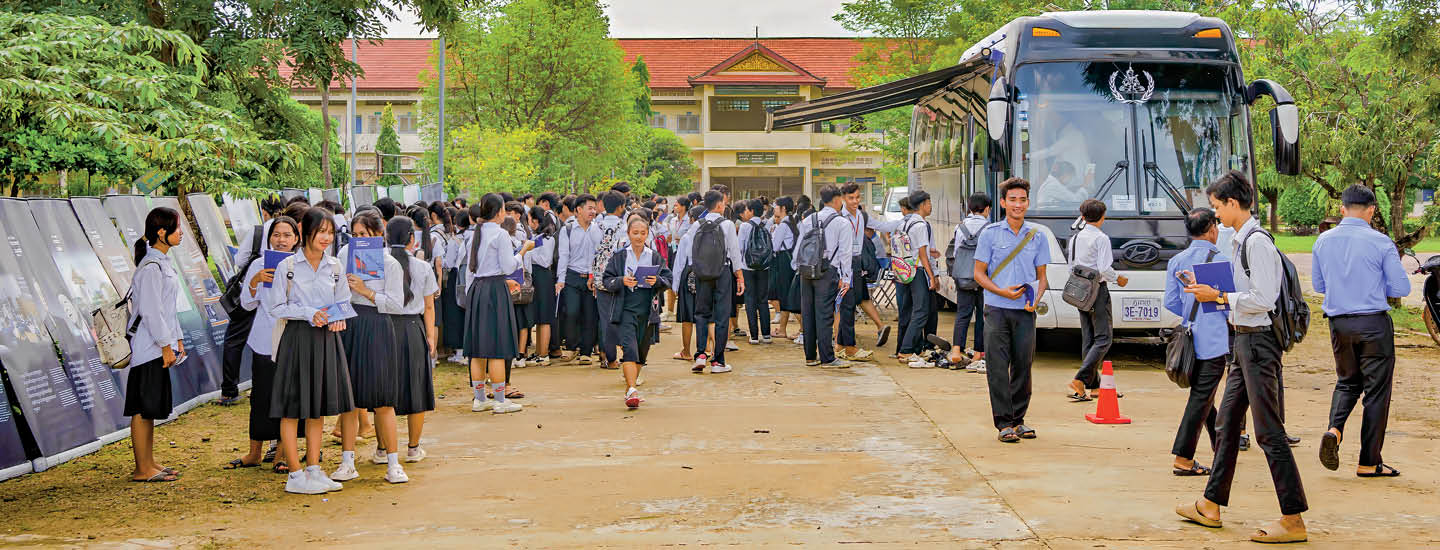The brand-new bus, equipped with the latest technology and a trove of digitized history, gleamed as it wove through morning rush-hour traffic in Cambodia’s capital, Phnom Penh. When it reached its destination, Kampong Speu High School, an hour west of the city, students came to meet it. So did seven survivors of the brutal Khmer Rouge regime, who arrived separately, to share their appalling stories with the teenagers.
Tuch Sakun, 82, wiped tears away with a leopard-print krama, a traditional scarf, as she described the killings of her father and her husband.
“As elders, we need to keep reminding everyone about what happened,” Tuch Sakun told the students. “You all are so lucky. You have nice clothes. You go to school. You have enough to eat.”
A brand-new bus wove through morning rush-hour traffic in Cambodia’s capital, Phnom Penh. Equipped with the latest technology and a trove of digitized history, it was heading to Kampong Speu High School, an hour west of the city. When it arrived, students came to meet it. So did seven survivors of the brutal Khmer Rouge regime. They were there to share their horrifying stories with the teenagers.
Tuch Sakun, 82, wiped tears away with a leopard-print krama, a traditional scarf, as she described the killings of her father and her husband.
“As elders, we need to keep reminding everyone about what happened,” Tuch Sakun told the students. “You all are so lucky. You have nice clothes. You go to school. You have enough to eat.”

